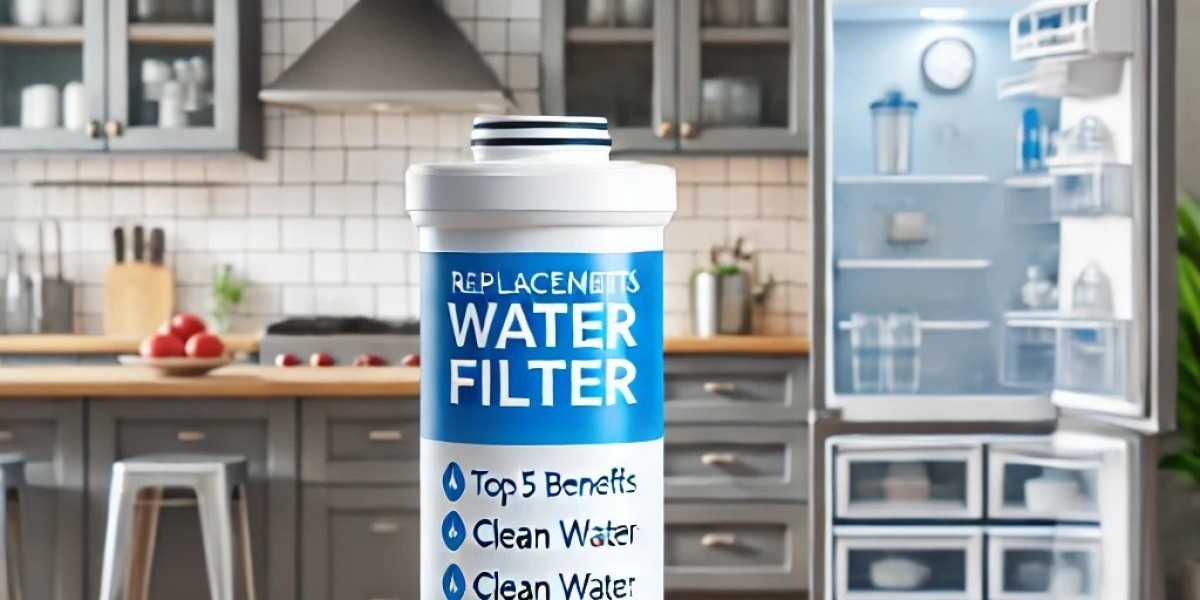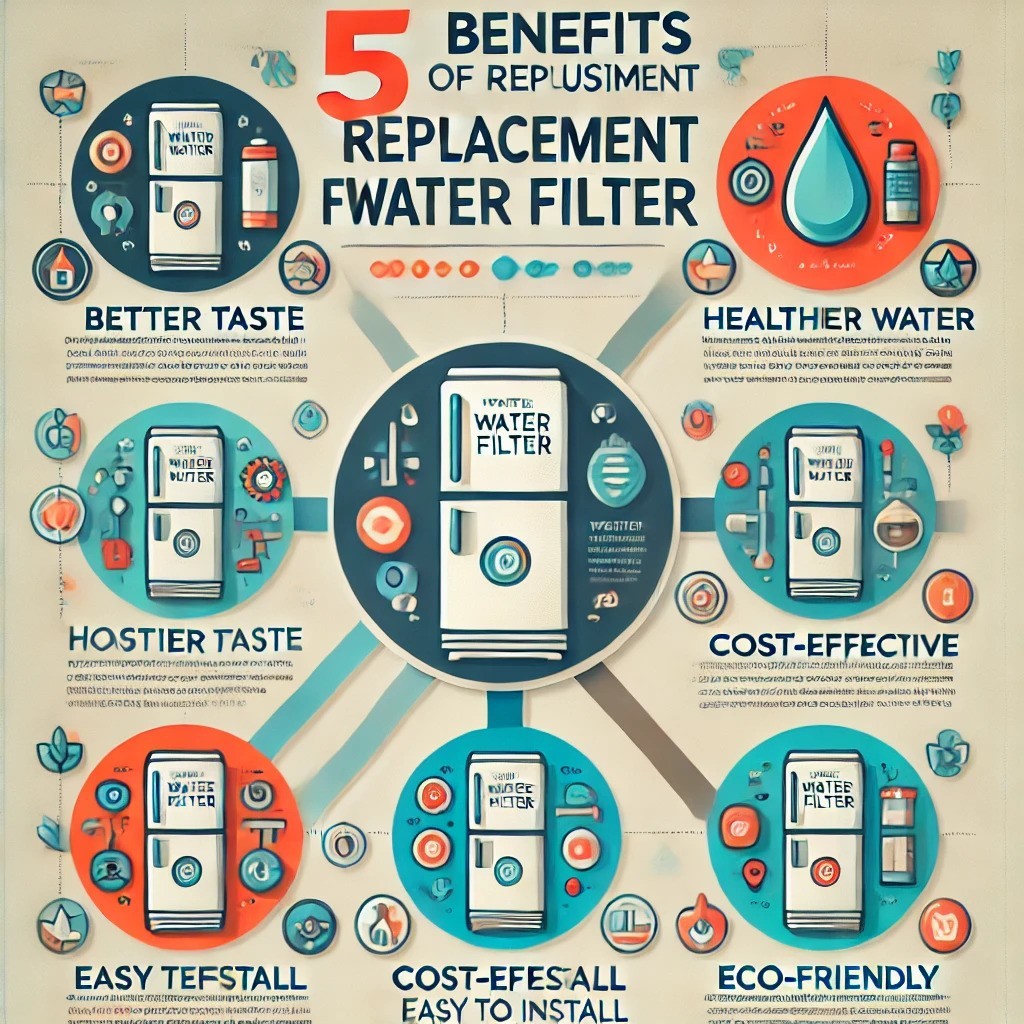When it comes to maintaining the quality of drinking water, especially from your refrigerator, the right filter choice is essential. Whether you own a popular LG model or another brand, the debate between manufacturer-approved LG water filters and aftermarket alternatives has sparked considerable interest. In this article, we’ll delve into what sets these filters apart, explore their advantages and limitations, and consider which type may be the best option for keeping your fridge water-safe and clean.
Key Differences Between LG Water Filters and Aftermarket Alternatives
1. Understanding Fridge Water Filters
Refrigerator water filters are designed to remove impurities and contaminants from the water before it dispenses through the fridge’s water and ice systems. These filters generally target:
- Sediment: Particles like dust, dirt, and sand that might enter the water supply.
- Chlorine: Used in many municipal water systems, chlorine affects water taste and smell.
- Heavy Metals and Other Contaminants: Some filters can also reduce trace heavy metals, pesticides, and certain chemicals.
2. Original Equipment Manufacturer (OEM) Filters
Original Equipment Manufacturer (OEM) filters are produced or endorsed by the fridge brand, like LG, Samsung, or Whirlpool. These filters are engineered to match the specifications of your specific refrigerator model.
Benefits of OEM Filters
1. High Compatibility
OEM filters are tailored for specific models, ensuring a perfect fit and straightforward installation. By matching the exact model and series of your refrigerator, you’re less likely to experience issues like leakage or malfunction.
2. Reliable Performance
Since OEM filters are tested to the fridge’s particular standards, they are likely to offer consistent performance. This often includes certifications from bodies such as NSF International, which sets rigorous standards for public health and safety, particularly about drinking water.
3. Warranty Assurance
Using OEM filters usually maintains any warranty coverage offered by the fridge manufacturer. If you use aftermarket filters, there’s a possibility that your warranty could be affected, particularly if there’s an issue with the water system.
Limitations of OEM Filters
1. Cost
OEM filters can be significantly more expensive than aftermarket options. They are typically priced higher due to brand association and quality assurance.
2. Availability
Certain OEM filters may not be as easily accessible, particularly for older or discontinued models. If a specific OEM filter is hard to find, replacing it may involve longer wait times or a premium price tag.
3. Aftermarket Filters
Aftermarket filters are manufactured by third-party companies and are often marketed as compatible with various fridge brands. These filters may offer similar levels of filtration but come at a fraction of the cost of OEM models.
For a more detailed understanding of the significance of maintaining filters in your appliances, read our guide on the Importance of Appliance Filters, which offers insights into maintaining both fridge filters and other appliance filters to ensure optimal performance.
Benefits of Aftermarket Filters
1. Affordability
One of the main advantages of aftermarket filters is their price. These filters are generally far less expensive than OEM filters, which makes them attractive to those looking to replace filters frequently without breaking the bank.
2. Wide Availability
Aftermarket filters are widely available and often fit multiple brands and models, making them easy to find and replace.
3. Comparable Filtration
Some high-quality aftermarket filters are also NSF-certified, ensuring they meet safety and performance standards similar to OEM options.
Limitations of Aftermarket Filters
1. Fit and Compatibility Issues
Despite being labeled as compatible, not all aftermarket filters fit perfectly, which can result in leaks or performance issues. Poor-fitting filters can compromise water quality and even damage the refrigerator over time.
2. Inconsistent Quality
Aftermarket filters vary greatly in quality and durability. Some may offer excellent filtration capabilities, while others might not meet the expected safety standards, resulting in incomplete filtration.
3. Potential Warranty Impact
Using aftermarket filters can sometimes void the refrigerator's warranty if an issue arises with the appliance’s water system. This risk is something to consider, especially for newer fridge models under warranty.
4. Key Factors to Consider When Choosing Between OEM and Aftermarket Filters
Deciding between OEM and aftermarket filters involves considering factors beyond cost and availability. Here are some key considerations to weigh before making your decision:
1. Certification and Safety Standards
Both OEM and some high-quality aftermarket filters carry certifications like NSF 42 and NSF 53, which verify their filtration capabilities and safety standards. NSF 42 certification ensures that the filter reduces aesthetic impurities such as chlorine, taste, and odor, while NSF 53 certification covers health-related contaminants, such as lead and cysts. It’s essential to verify if the aftermarket filter you’re considering meets these certifications, as many lower-priced filters may not be certified.
2. Filtration Needs
Your water quality and filtration needs play a significant role. For households with high-quality municipal water, a filter that primarily addresses taste and chlorine might be sufficient. For those with well water or specific contamination concerns, a high-performance filter, often offered by OEMs, may be preferable.
3. Refrigerator Age and Warranty
If your fridge is relatively new or under warranty, opting for an OEM filter might be wise to ensure that your warranty remains intact. Older refrigerators, especially those out of warranty, may be more cost-effective to maintain with aftermarket filters.
4. Maintenance Frequency
Depending on water usage and quality, most refrigerator water filters should be replaced every six months. If you find that your water has an unpleasant taste or reduced flow rate, it may be time to replace the filter. Due to their lower price point, aftermarket filters might make it easier to stick to a consistent replacement schedule.
5. Comparing the Performance of OEM and Aftermarket Filters
Filtration Effectiveness
While both OEM and certain aftermarket filters can remove contaminants effectively, OEM filters tend to have more reliable quality control due to rigorous brand testing. This consistency might be lacking in some aftermarket filters, where quality may fluctuate from batch to batch.
Longevity and Replacement Frequency
OEM filters typically last as long as advertised, often around six months under regular usage. Aftermarket filters, depending on the brand, can vary in their longevity. Some high-quality aftermarket filters may last as long as OEM options, but this isn’t a guarantee.
Taste and Smell
Since many users seek water filters to improve the taste and smell of fridge water, it’s worth noting that both OEM and certain NSF-certified aftermarket filters can deliver excellent taste improvement. However, poorly manufactured aftermarket filters may fail to effectively reduce chlorine, leading to less satisfactory taste.
6. Cost Analysis of OEM vs. Aftermarket Filters
For budget-conscious consumers, aftermarket filters provide an attractive option. However, it’s crucial to consider the long-term value. Although OEM filters are more expensive upfront, they offer consistency and peace of mind regarding fit and performance. Aftermarket filters may lead to additional expenses if compatibility issues arise, or if they need to be replaced more frequently due to lower durability.
7. Environmental Impact
Both OEM and aftermarket filters create waste, as they are typically replaced every six months. Some aftermarket filters are made using recyclable materials, which can reduce environmental impact. Some brands also offer recycling programs for used filters, allowing for proper disposal or reuse of components.
Conclusion: Which is Best for Your Fridge?
Ultimately, the choice between OEM and aftermarket filters depends on a combination of personal preference, budget, and usage needs.
For those prioritizing reliability and warranty protection, OEM filters are an ideal choice. They are engineered to meet the precise specifications of your fridge and deliver dependable filtration.
For budget-conscious buyers or those with older fridges, high-quality aftermarket filters can be a practical and economical solution. Just ensure they carry the necessary certifications and have positive reviews regarding performance.
In either case, ensuring a regular filter replacement schedule, approximately every six months is key to maintaining water quality and keeping your refrigerator’s water system in optimal condition.




